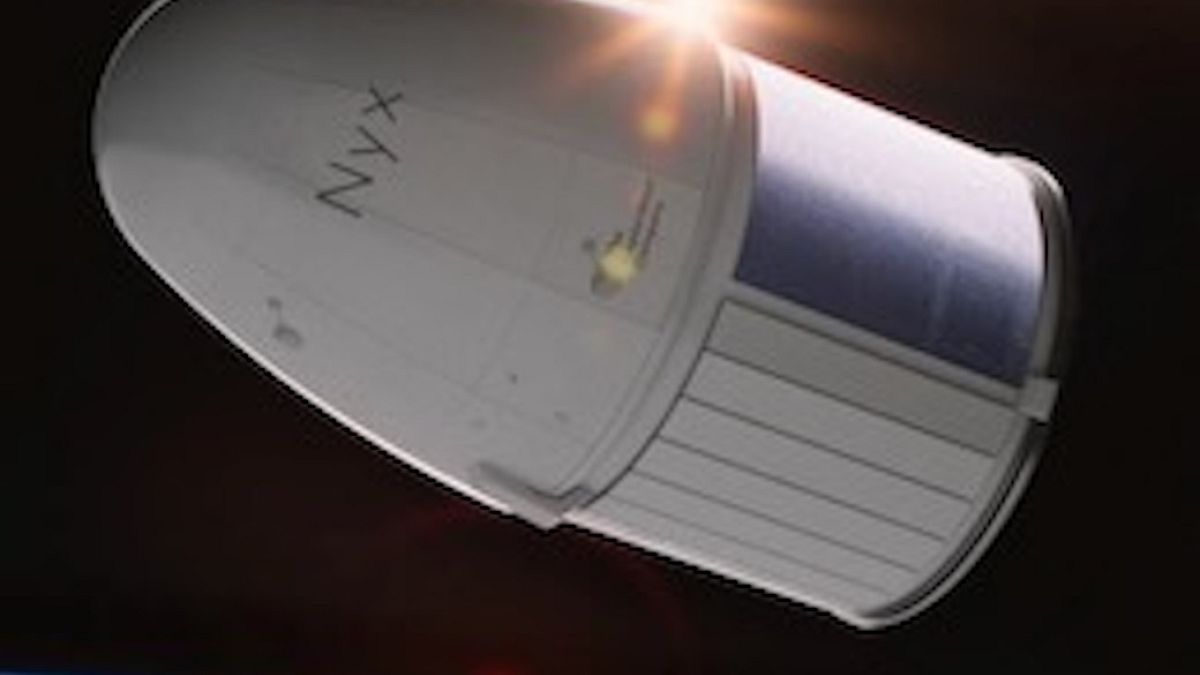The Exploration Company, the European rival of SpaceX, has achieved another milestone in funding to develop its space cargo capsule, Nyx. Government-backed funds from both Germany and France are among the major investors.
Founded in 2021, The Exploration Company (TEC) announced on Monday that it has raised $160m (€151.7m) in Series B funding, bringing its total funding to nearly $208m (€197m). The Germany-based spacecraft manufacturer is often considered the European rival to Elon Musk’s SpaceX Dragon, a reusable capsule designed to transport cargo and humans to space.
The Series B funding round was led by venture capital firms Balderton Capital and Plural. French government-backed French Tech Souveraineté and German government-backed DeepTech & Climate Fonds were also major contributors. In February, TEC raised €40m (€38m) during its Series A funding round, co-led by EQT Ventures.
Plans to develop passenger and cargo transporter Nyx
The funds will primarily be used to further develop TEC’s flagship product, Nyx, a reusable spacecraft similar to SpaceX’s Dragon. Nyx is designed to transport passengers and cargo to and from the International Space Station (ISS) in low Earth orbit. The second version of Nyx is expected to be launched in 2025, with the first full mission scheduled for 2028.
Hélène Huby, co-founder and CEO of TEC, commented: “Over the past 12 months, we have hit major operational and financial milestones and signed significant service contracts with both space agencies and commercial clients. This new funding is the next step in scaling up our ambitions.”
First privately funded reusable capsule
TEC is the first privately funded reusable space capsule capable of flying to space stations, she emphasised, unlike SpaceX’s Dragon, which was largely funded by NASA.
In May, TEC secured a significant contract with the European Space Agency (ESA) for the Low Earth Orbit (LEO) Cargo Return Service. This agreement included an initial €25m (€24m) in funding, marking a critical achievement in the company’s commercial progress and setting the stage for potential future collaborations with NASA.
The ESA launched a tender in December 2023 for space cargo transport services, aiming to bolster Europe’s independence and competitiveness in post-ISS operations.
Expanding Market Opportunities
Huby expressed confidence in the growing market for space cargo services, which she estimates to be expanding at an annual growth rate of more than 10%. Currently, only two companies – SpaceX and Northrop Grumman – provide cargo services to and from the ISS, both of which are based in the United States. However, potential competition is emerging from China, India, and Russia.
The Exploration Company has already secured approximately $770m (€730m) in contract backlogs from private space station developers. In May, TEC signed an agreement with Starlab Space, a LEO commercial space station, for three pre-booked cargo transport missions. In September 2023, the company also reached a pre-booking agreement with Axiom Space, an American privately funded space infrastructure developer.
A Distinctive Approach
Huby highlighted Nyx’s unique advantage in its ability to launch from space stations in different countries, unlike SpaceX’s Dragon, which is specifically designed to launch on SpaceX rockets.
Speaking in an interview, she stated: “The world needs more competition, and TEC is building an alternative. We are very aware that we are late, that we are much smaller, etcetera, but we need to start.”
With this ambitious funding round and a growing roster of contracts, TEC aims to become a key player in the global space transport market.

